If directors will insist on staging Handel oratorios as if they’re operas, it makes sense to pick Semele, which is practically an opera already. Under George II, opera was banned in London theatres during Lent (too exotick, too irrational), so Handel slipped his best material past the authorities by presenting it in concert format, set to biblical stories. Possibly by 1744 he was getting a bit careless, because there’s nothing remotely biblical about lovely, pouting Semele’s 24/7 shagathons (‘endless pleasure’, apparently) with King of the Gods and all-round studmuffin Jove. Handel’s sometime collaborator Charles Jennens denounced Semele as ‘no oratorio but a bawdy opera’: all the tunes, double the outrage.
It’s fun, in short, and that presents an opportunity and a problem for Adele Thomas, director of this new staging at Glyndebourne. The opportunity: Semele has a musical richness and variety that Handel often denied himself, and a plot (the libretto is based on Congreve) that’s as sly, as playful and as genuinely raunchy as the old Saxon ever really got. The problem? Even the most imaginative directors can struggle to shake the delusion that their job is didactic – that they’re duty-bound to send us home with a clunking ‘but seriously’ sitting like a lead weight on an otherwise enchanted evening.
That was the weirdest thing about Thomas’s Semele – the dutiful tut-tutting that framed an absolute romp. Act One plays out on a slagheap against overcast skies. Fair enough; we’re contrasting mundane reality with the splendour of love, Olympian-style. But Act Two’s heavenly love nest is an equally grotty brownfield site, this time with undergrowth. By the end, Thomas has the chorus succumbing to a collective nervous breakdown and Semele’s buzzkill sister Ino (Stephanie Wake-Edwards) angrily resisting her heaven-sent wedding. True, Semele has come to a sticky end, and a director can lose their Bold Feminist Reimagining licence for even hinting that marriage might be a positive outcome. Still, if the music says it’s a happy ending, bet on the music.
Mostly, though, this production leans into the mischief, the sonic splendour and Handel’s sensuous relish in melody and emotion. Semele (Joélle Harvey) and Jove (Stuart Jackson) descend from heaven in a bed of flowers, he yawning in post-coital torpor (he keeps his specs on for sex); she pealing out her hymn to pleasure in all the flushed, sunny radiance of Harvey’s succulent soprano. Jove wears a yellow zoot suit as they frolic in the weeds. Meanwhile Juno (Jennifer Johnston, dressed like a peacock, with Flash Gordon headwear) gurgles with pantomime malice as she plots their downfall with her sidekick Iris: played (in a dazzling bit of casting) by the Venezuelan male soprano Samuel Marino, whose voice is as fluid and bright as his movements are balletic.
The singing hits the spot throughout – from the moments when Johnston reveals her full vocal majesty to the grumpy, half-mumbled aria of the sleep-god Somnus (Clive Bayley, sounding velvety) and the exquisite control and delicacy with which Jackson all but whispers the final phrases of Jove’s great love song ‘Where’er You Walk’. The chorus bounds athletically over some particularly gnarly writing and the Orchestra of the Age of Enlightenment, under Vaclav Luks, is nimble, silky and never imposes. Musically and dramatically, this felt like a Semele with its heart (or at least, its hormones) in the right place. Every century has its conventional pieties. Handel understood that, and in Semele he made them the dull-but-necessary entry price to a garden of delights. On the evidence of this staging, I suspect that Thomas understands it too.
Vaughan Williams also hesitated to call his 1951 music drama The Pilgrim’s Progress an opera. He preferred the term ‘Morality’, though he wanted it staged in a theatre rather than a church; and having witnessed this gallant attempt to present it in Gloucester Cathedral as part of the Three Choirs Festival, I’m with him on that. British Youth Opera performed in front of the Royal Philharmonic Orchestra in a rudimentary semi-staging by Will Kerley. No problem there as long as the cast are well characterised and passionately sung, and from what I could make out from the back of the nave Ross Cumming, as Pilgrim, delivered on both counts.
Beyond that, the Cathedral’s sightlines and acoustic scotched closer engagement, leaving us to bathe in a luminous wash of orchestral and choral sonority (the Festival has a particularly sweet-sounding Youth Choir), marshalled with purpose and obvious love by the conductor Charlotte Corderoy. It sounded gorgeous but with the words largely indistinguishable it couldn’t really be called opera. In fairness, the Festival printed the full libretto in the programme book; but the thing is the size of a small telephone directory and the cathedral lighting is dim. I’ve nothing but respect for this most venerable of festivals; but guys, it’s 2023. There are these things called surtitles.
Got something to add? Join the discussion and comment below.
Get 10 issues for just $10
Subscribe to The Spectator Australia today for the next 10 magazine issues, plus full online access, for just $10.
You might disagree with half of it, but you’ll enjoy reading all of it. Try your first month for free, then just $2 a week for the remainder of your first year.

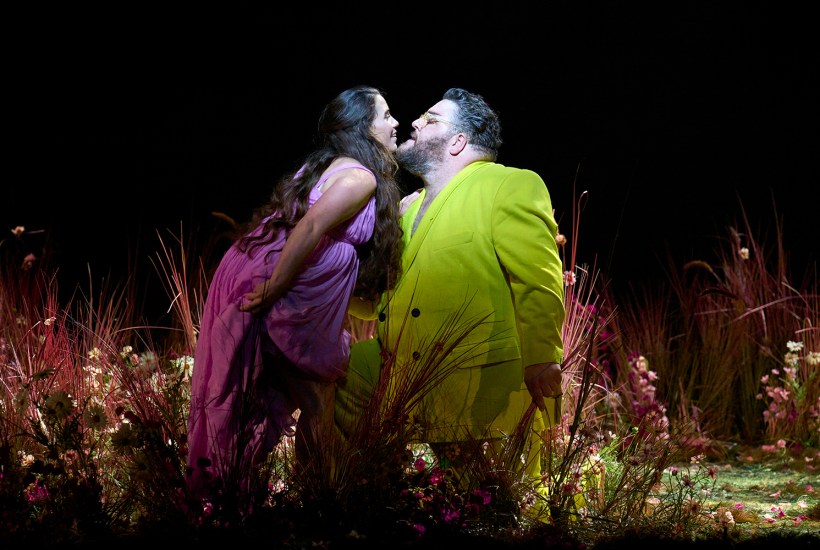
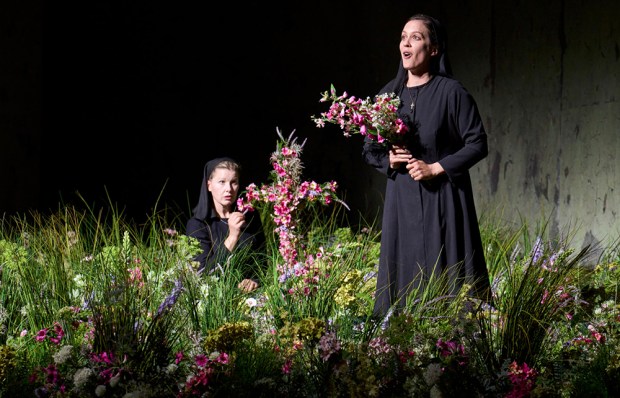
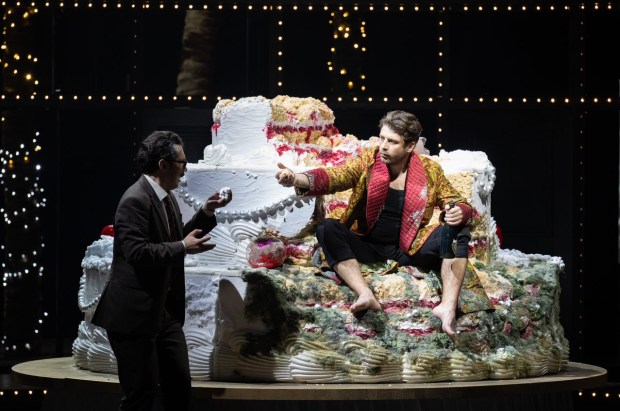
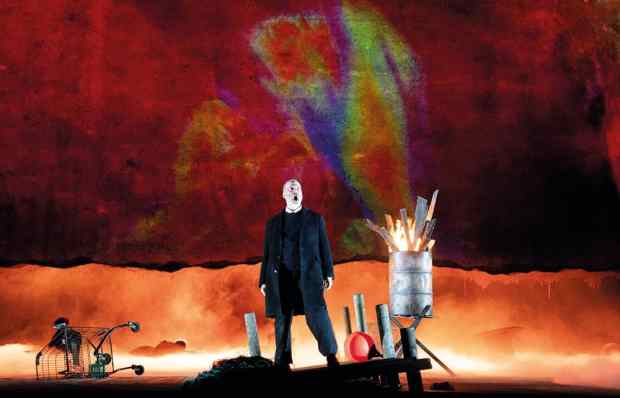
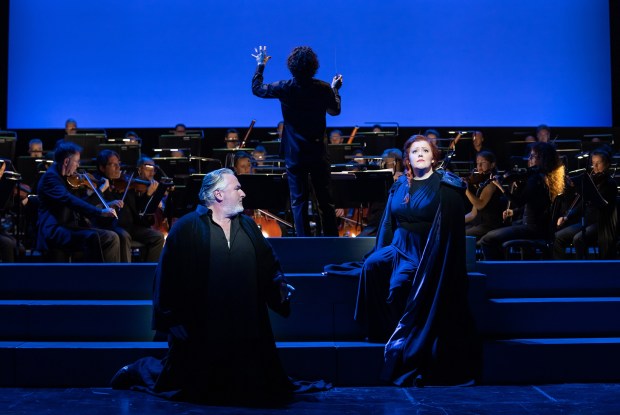

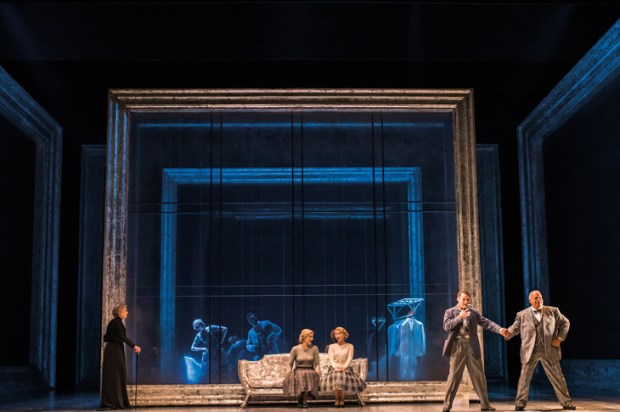






Comments
Don't miss out
Join the conversation with other Spectator Australia readers. Subscribe to leave a comment.
SUBSCRIBEAlready a subscriber? Log in